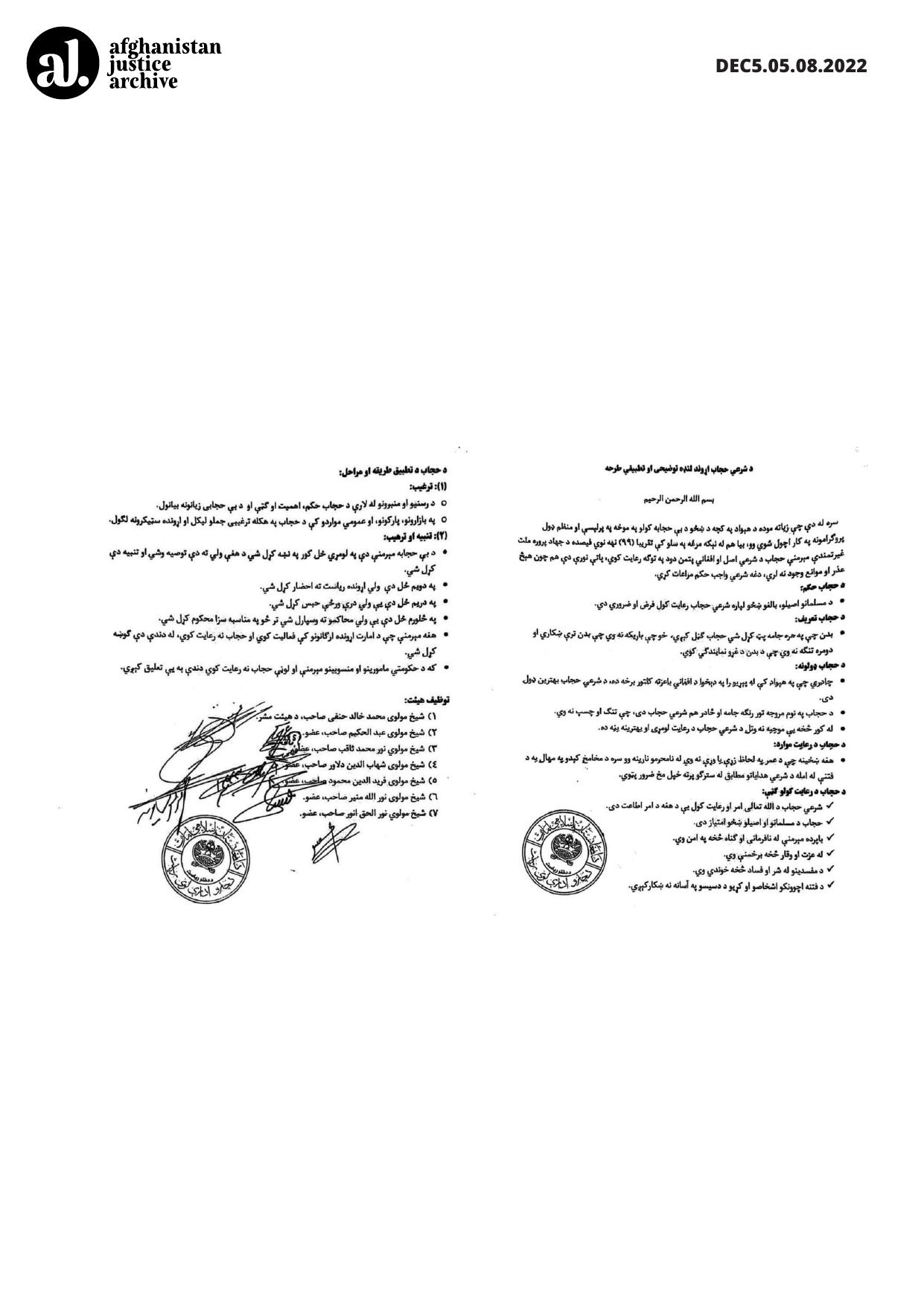Decree
Decree Translation
Date: 18/02/1401
The Taliban established a committee led by the Minister for the Promotion of Virtue and Prevention of Vice, along with six members of the Emirate cabinet, to develop a plan detailing the requirements of Sharia hijab, its enforcement process, and penalties for non-compliance. This plan was officially approved under Decree No. 1930 (dated 24/9/1443) by the Taliban leader and was published in the official government newspaper.
The plan outlines:
The Sharia basis for hijab
The definition and type of hijab
Conditions and benefits of observing hijab
A six-step implementation and punishment mechanism
Penalties for non-compliance include:
On the first offense, the woman's home address and head of household are identified and reprimanded.
On the second offense, the woman's male guardian is summoned to the Ministry.
On the third offense, the guardian is imprisoned for three days.
On the fourth offense, the guardian is referred to the judiciary for Sharia-based punishment.
On the fifth offense, any female government employee violating the hijab rule is dismissed.
Male government employees whose wives or daughters fail to observe hijab will have their duties suspended.
This document represents a formally codified Taliban governance policy, confirmed by a Taliban leader's official decree (No. 1930), with direct publication in the official state gazette. It is an escalation in the regulation of women's dress, linking female conduct directly to male guardians' responsibilities and employment status. The tiered enforcement mechanism reflects a structured system of surveillance, discipline, and control, and the fact that it is a written decree confirms its legal and institutional status within the current Taliban administration. The integration of punishment into employment and judicial processes illustrates the regime's use of moral policing as an instrument of social control.
